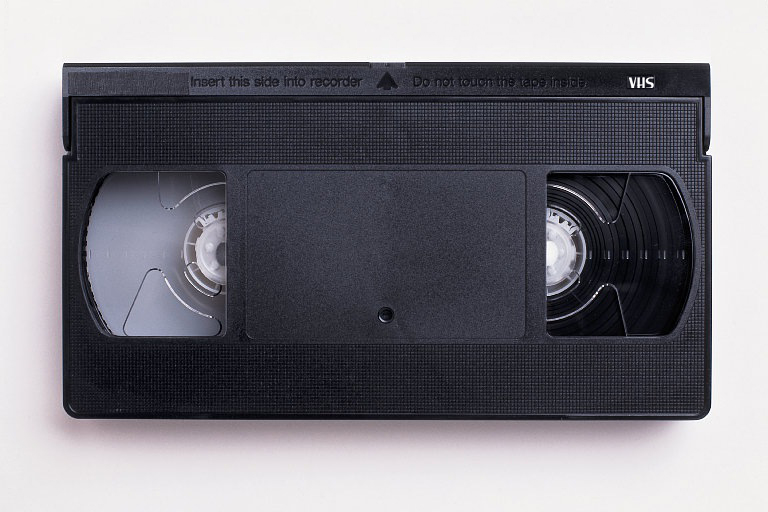
The Had To Be Made Film Festival (HTBMFF) is the most recent film festival to put out a call for entries. If you've tried the film festival circuit and still don't have a distributor, then the Had To Be Made Film Festival might be for you.
If you're thinking this is just another festival, it's not. In fact, you don't have to make reservations to attend, and you don't need to travel to some distant location. Just go to the HTBMFF website, www.hadtobemade.com, and see if there's a participating independent video retailer in your area. If there is, head down to the store and check out the HTBMFF display. Time won't be a problem either. The festival will run year-round, with two five-month-long judging periods. Festival finalists will have their films released on DVD. Two DVDs, each containing one feature and two shorts, will be issued per month for five months.
According to the HTBMFF website, 27 independent video retailers in 14 states have already paid for at least one license fee to participate as festival sites.
The brainchild of independent film producer Richard Green and film industry consultant Mike Kyle, the HTBMFF was conceived as the filmmaker's answer to the grueling process of securing first-rate distribution by proving a film's marketability before approaching a distributor. Very few filmmakers have the desire or financial resources to make films that won't be seen. Yet, according to Green, "There are thousands of truly independent feature films––many of them documentaries––that win festival awards and never get distributed, so the public never gets a chance to see them. Therefore, unless you can afford to go around the country entering your film in all the festivals-a very expensive process––the two- or three-hundred festival participants are the only ones who ever get to see your film."
The reality facing most filmmakers is that the distribution offers they receive are often accompanied by low advances and promises of net percentages after all advances and other charges have been recouped. Even when their films are successful, most filmmakers see little money beyond the initial advance.
Film distribution is a risky business. If a film misses, the distributor loses everything it has sunk into advances, prints and promotion. Distributors want to minimize losses and maximize wins; filmmakers want people to see their films.
This isn't to say that filmmakers don't want to make money. But filmmakers don't spend years pouring their money and souls into a project because they think it'll make them rich. They do it because they're passionate and have something to say.
Green wanted to create a festival for people who had something to say, people who were passionate about their subjects, people who had to make their films. But, he wanted to create a festival that would do more than show films to a few hundred people and give out awards. He wanted to create a vehicle that would showcase films and demonstrate their viability in the marketplace.
Using the experience he gained while forced to self-distribute his own autobiographical film, Seven Year Zig Zag, he hit upon the idea of reversing the normal distribution sequence and go directly to independent video retailers. His research into the video market revealed that of the 12,000 independent video retailers, 4,500 have significant audiences for independent films.
According to Green, "There are thousands of films that have no distributor, there are 4,500 video retailers who want that product and get it because it's not being distributed, and there are 35 million people going to see independent films at theaters in the United States. Our idea was to create a festival that would bring these three elements together. If a feature was made 10 years ago and nobody saw it, then we want it in the festival."
All films submitted to the festival will be screened by a HTBMFF staff member, a non-industry festival evaluator and a video retailer. Films selected by the preliminary judges will be passed to a jury of industry professionals, who will select 10 features and 40 shorts that will be released on DVD.
"Filmmakers whose films are selected for presentation in the festival will retain all the rights to their films," Green explains. "In addition, the features that are selected will receive 20 percent of the revenues generated from the rentals of their films. Filmmakers whose shorts are selected will receive four percent." He adds, "information gleaned from the retailers, rental figures and viewer comments posted on the website will be compiled in a marketing report that the filmmakers can use to secure distribution contracts."
Entry fees are modest––$35 to $70 for features 30 minutes and longer and $20 to $25 for films under 30 minutes. Entry fees will be reduced by five dollars if filmmakers submit their projects through "Without a Box." Go to www.hadtobemade.com for entry forms and details on submissions.
Joseph E. Miller, the author of more than 150 newsletter and magazine articles, holds an MA in film from the University of Maryland and is the writer, producer and director of more than 50 documentaries. He is currently producing his first feature based on the best-selling novel Children of the End by Mark Clements.
